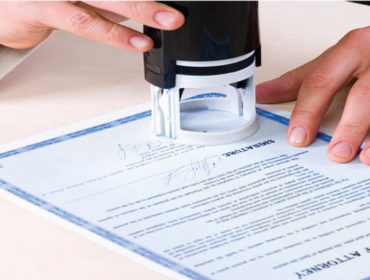What Is HIPAA?
 HIPAA stands for Health Insurance Portability and Accountability Act. A HIPAA document allows you to authorize others to have access to your health information by allowing health workers to release pertinent medical information to those persons who should have access to it. The penalties for health workers (physician, nurse, hospital administrator, etc.) who violate complex HIPAA privacy rules can include fines and jail time. Therefore without this authorization, cautious health workers can withhold vital information even from those persons who should have access to it, both legally and common-sense wise. Because patient rights are paramount, a health worker who is uncertain about privacy responsibilities will often say “no” rather than risk getting in trouble. Frustration and delay happens at a moment when time may be scarce and nerves frayed.
HIPAA stands for Health Insurance Portability and Accountability Act. A HIPAA document allows you to authorize others to have access to your health information by allowing health workers to release pertinent medical information to those persons who should have access to it. The penalties for health workers (physician, nurse, hospital administrator, etc.) who violate complex HIPAA privacy rules can include fines and jail time. Therefore without this authorization, cautious health workers can withhold vital information even from those persons who should have access to it, both legally and common-sense wise. Because patient rights are paramount, a health worker who is uncertain about privacy responsibilities will often say “no” rather than risk getting in trouble. Frustration and delay happens at a moment when time may be scarce and nerves frayed.
To ensure you have provided those who you want to have access to your medical information Contact Our Chicago Estate Planning Attorneys
Situations Where HIPAA Could Have Helped
No one should have to go through the following unfortunate and unforeseen circumstances involving a child, parent, sibling, life partner or friend; here or thousands of miles away.
Imagine: Your daughter is in college, a thousand miles away. You pray that she is safe in her new environment, but if she is hurt, you can find yourself in a nightmare world. You get a call from a hospital: “She’s here, in stable condition.” You ask “What happened? What’s happening?,” but are denied basic information. The worker at the other end of the phone may feel legally restricted in the amount of information she can give you without HIPAA authorizations in place. She believes that she is honoring your daughter’s federal right to privacy under HIPAA and minimizing her own potential liability, but her response of “you’ll have to take it up with our legal department” leaves you in the lurch.
A man’s wife had a nervous breakdown while working for a major U.S. company in Asia. Her flight from China back home to Dallas connected in Chicago. Before she could get on her connecting flight from Chicago to Dallas, she began to act erratically and was restrained and involuntarily committed at a Chicago area hospital. Her husband, lacking a HIPAA authorization, was unable to get any information over the phone. He flew into Chicago to be closer to the situation, but the hospital still refused to tell him anything about his wife’s condition.
After bouncing around to a few different hospital employees, I spoke with their lawyer who informed me that the woman was refusing to authorize disclosure of her condition to anyone in her family. Luckily he agreed with me that the patient lacked the capacity to block disclosure, so HIPAA privacy laws did not actually prevent substantive communication with the husband. The husband was able to see his wife, she calmed down and they went back home, but for a day or two the husband and the rest of the family were completely shut out.
The hospital could have dug in its heels and refused to cooperate without a court order declaring incapacity, though neither the husband nor the hospital was keen on incurring the large expense of bringing or defending an emergency court petition. Common sense eventually won, but with simple documentation some of the chaos would have been avoided.






































